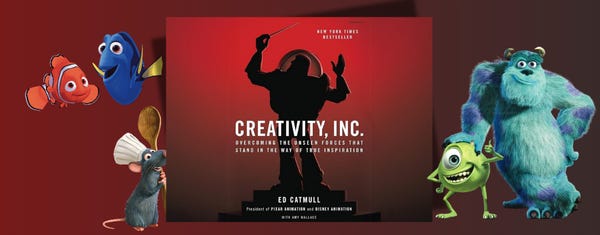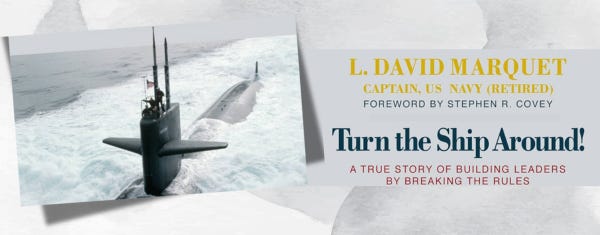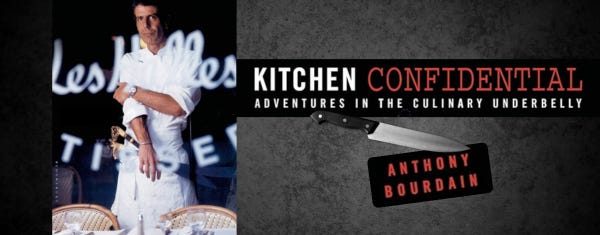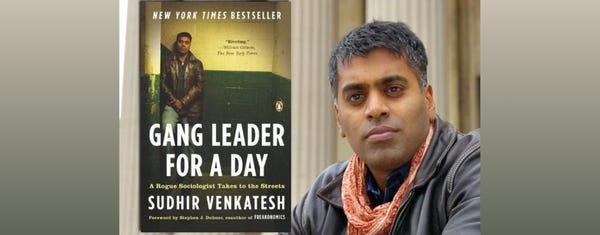Reading is my longest and most-fulfilling hobby. So of course I’m launching a book series!
Periodically, I'll share themed posts listing my favorite books and lessons learned from them. Sign up to get notified when I post new book recommendations! In addition, being a paid subscriber will let you easily find these posts in the ChaiTime archives!
Today let’s look at 5 books from other industries and the lessons I picked up that apply to tech.
1. Better by Dr. Atul Gawande
Industry
Medicine
Summary
Dr. Gawande, a renowned surgeon and public health expert, challenges the idea that medicine needs only top talent and intelligence. He uses stories to show flaws in today's medical systems. He suggests solutions that could work elsewhere too.
Lessons Learned
Diligence - the necessity of giving sufficient attention to detail. This might seem like an easy thing, but to do it well at all times is fiendishly hard!
Do Right - "Right" is a loaded term with many views in business. Dr. Gawande talks about the moral dilemmas faced in medicine through his stories. They changed my perspective on ethics in medicine and business.
Ingenuity - I loved the definition of Ingenuity in this book. Dr. Gawande points out that Ingenuity is not a matter of superior intelligence. Instead, it is a willingness to recognize and reflect on failure. It is also a constant quest for improvements.
2. Creativity, Inc. by Ed Catmull
Industry
Entertainment/Media
Summary
Ed Catmull is a co-founder and former president of Pixar. In this book, Ed shares the underlying philosophies that made Pixar successful. This book is for anyone who wants to work in a creative, problem-solving environment.
Lessons Learned
Always try to hire people who are smarter than you. Always take a chance on better, even if it seems like a potential threat.
If there is more truth in the hallways than in the meetings, you have a problem.
It is not the manager’s job to prevent risks. It is the manager’s job to make it safe to take them.
3. Turn the Ship Around by Captain David Marquet
Industry
Defense
Summary
David Marquet is a retired United States Navy captain. In this book, he tells how he turned the U.S. Navy's worst nuclear submarine crew into one of the best. This book perfectly conveys my management philosophy. I always recommend it to new managers and tech leads!
Lessons Learned
The Leader-Leader model instead of the Leader-Follower model.
Intent-based leadership as a mechanism for implementing delegation.
Don’t move information to authority. Move authority to the information.
4. Kitchen Confidential by Anthony Bourdain
Industry
Hospitality/Restaurant
Summary
Anthony Bourdain was a celebrity chef and food connoisseur. This book is an insider’s look into the underbelly of the culinary world. The book shows what it is really like to work on the restaurant industry's front lines. I enjoyed Bourdain's memoirs and his exposé on the industry's hidden practices.
Lessons Learned
Tips for handling the fast-paced, high-stress environment of the kitchen. ‘Mise en place’ was my favorite, followed by ‘hire the Professional not the Artist’.
Customer centricity.
Don’t order seafood on Mondays in restaurants if you want to avoid leftovers.
5. Gang Leader for a Day by Sudhir Venkatesh
Industry
Criminal/Drugs
Summary
Prof. Venkatesh, a sociologist, studies underground economies, public housing, and technology. His book examines the urban poor and discusses poverty, money, gangs, and drugs. Venkatesh's nearly decade-long research provides valuable data. It reveals that the street-level drug trade works like a corporation.
Lessons Learned
The similarities between gangs and American corporations:
A gang leader's schedule was as strict as a CEO's. Both faced pressure to make timely decisions with incomplete information.
The gang had an organization structure like a U.S. company's.
The issues at the Black Kings meeting were like those at corporate board meetings. They included the market conditions affecting growth, supply chain issues, and regional expansion.
The complexities of poverty and how government intervention affects it.
The ethical dilemmas of characters like JT and Ms. Bailey made me wonder if their beliefs and actions were helping or hurting the tenants in the projects.
I’d love to know if you found any of these books interesting and why!









